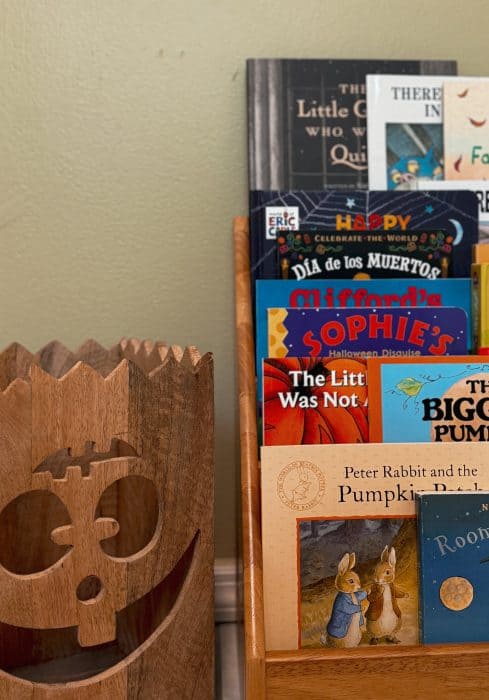
Neuroscience research states that the brain is a social organ, it develops through relationships, especially In a child’s first three years of life. Fostering a close relationship with nature play can create lasting memories, stimulate creativity, exploration, problem-solving, STEM education, and emotional regulation to increase a road to positive mental health.
This relationship is important simply by the ongoing connection between nature and humans. Where we both are constantly surviving by the exchange of resources to one another; nourishing to nurture. Nature play also speeds up recovery from illnesses, vastly from the clean air and medicinal herbs.
The magic of this earth is beyond what few can understand. Our child / inner child thrives by being sandwiched between the winds, colored by the sun, sung to by the birds, and flavors of berries on their vines.

Nature Play Benefits

“It’s a wondrous thing how the wild calms the child.”
~ Unknown

1. Reduces Stress and Anxiety
Nature is a natural medicine for stress and anxiety. It’s common to hear “I’m going to go get some fresh air”, after a moment of inflamed emotions. Reliably known to cleanse the mind and body, particularly while the sun is out to receive Vitamin D. This can increase your serotonin and regulate breathing and blood flow (the happy nerve cell). It was fascinating to hear how animals take a big part in decreasing stress bodies, where there is plenty to see in the forests and parks.
If you see your child becoming frustrated, and ill-tempered take them outside and let them use the outdoors as an outlet for rage. It is the most healthy and reliable source for bringing them back into their body and out of their mind. BIG feelings are beautiful the same way little feelings are, be open and help them through this process to navigate regulating their emotions.

The earth does not belong to us. We belong to the earth.
~ Chief Seattle

2. Builds Confidence
Being outdoors gives a child the chance to make their own decisions. They meet in solitude, both on a physical plane and mental plane. It’s important for children to have the freedom to run in the wild, feel wild, be wild. This is the opportunity to gain a more trusting relationship with your child, just by incorporating independent play regularly. Exploring the natural world outside of the home can build enthusiasm and self-motivation to learn.

“You are made from the same energy source that has created the oceans, the forests, the mountains, the valleys, and the stars in the sky.”
~ Unknown

3. Teaches Responsibility and Consequences
Lifelong skills under the umbrella of responsibility and consequence will be tested and surfaced constantly. But how do we achieve this without integrating fear into a child’s mind? By. letting. them. experience. “their human”. We all learn by experience, more than we do by word of mouth. The only stories children want to hear are the fairytales and exploration that are beyond the realism of this world.
Children adapt and learn through play and fulfilling curiosities. The kids who have high energy might consider pulling plants from their roots. Remind them what they are about to do, ask what is going to happen, and explain the “consequence”. If they decide to take it from the root, you have to let them see the results in real-time. To see it through, sometimes you have to experience the situation firsthand. Nature play can teach cause + effect, individual responsibility, and emotional empathy.

“Encouraging a child to go outside in all weather builds resilience, but more importantly it saves them from spending their life merely tolerating the “bad” days in favor of a handful of “good” ones – a life of endless expectations and conditions where happiness hinges on sunshine.”
~ Nicolette Sowder

4. Promotes Creativity and Imagination
Nature play is a school in its own form. There are endless possibilities to teach numbers, colors, science, discovery, and creativity. Research says that being in an open area of fresh air (oxygen from trees) immediately improves our focus and memory.
You can share stories with the living things around you guys. Demonstrate your observations with rich vocabulary, then have them do the same. Ask them to describe the colors and textures in a mud puddle. Ask open-ended questions that get them thinking: “Why did you pick this trail? How do you think they built that? Where do you think that bird is going?” Or when you get home, have them draw their favorite thing about the trip, or write about the adventure. Create a worm farm, scavenger hunt, or bring leaves to draw or place as memorabilia in a notebook. There is so much to be inspired by from one adventure.

“Don’t just tell your children about the world, show them.”
~ Penny Whitehouse

5. Gets Them Moving
Granted there is nothing more frustrating than having pent-up energy in between walls, under a roof. Static feelings of limitations overwhelm the body, your child’s brain and body are bouncing off of the walls, most especially if they have ADHD. I call that experience, cabin fever, and cabin fever runs through a child blood daily! Outside play helps children focus while –letting out their energy battery.
Outdoor/ Nature play can help children focus on their task, exceptionally if the task has little to no boundaries. Draining a child, energy battery can help them rest better at night! Rest for the whole house.
While outdoors, walk and ask these questions that can motivate them to stay active, “If we were pretending, what would this be and what would you do? Where or what do we explore next? If you were an animal in the jungle, what would you be? What do they do, what sounds do they make?”

“You should sit in nature for 20 minutes a day… unless you’re busy, then you should sit for an hour. “
~ Zen Saying

6. Slow’s Them Down
We live in a society where a fast-paced “rate race” lifestyle is valued and admired. Feelings of FOMO are at an all-time high, which is why it’s mandatory to disconnect for the sake of our mental health. Disconnecting means living intentionally, being present, and holding an open mind to the world around us.
Slowing down could be meditating, trying breathing exercises, or gardening with your little one. Conveying that these steps and processes take patience, consistency, and nurturing. Explain the medicinal herbs, aesthetic flowers, and animals that survive from these plants. To think beyond their surroundings, observe the life cycle, and watch their anxieties plummet. What’s beautiful is that there is no force in their intentional behavior, nature creates it. Just from close observation, children learn the process of empirical science, while lovingly receiving the good bacteria from the dirt.

“To raise a nature-bonded child is to raise a rebel, a dreamer, an innovator – someone who will walk their own verdant, winding path.”
~ Nicolette Sowder

7. Rich-Stimulation
The outdoors have a less narrow effect on a child’s five senses, while still being triggered at once. There is a soft fascination in a natural environment compared to a structured home that enforces children to directional distractions.
According to, “The National Libraries of Medicine” it’s said that
“High exposure to background TV has been found to negatively affect language use and acquisition, attention, cognitive development and executive function in children younger than 5 years. It also reduces the amount and quality of parent-child interaction and distracts from play”
Imagine the connection and nourishing development of a child’s relationship can grow to nature when disconnected from screen time noise. In my house, the sound machine is constantly playing bird noises to bring a calming environment to our home. Children can be taught through nine senses, as proven by Montessori learning. Likely moved by gentle learning, open environment, subtle introduction, curiosities, and creativity. There are many montessori-like activities and toys inspired by sustainable goods and objects in nature.
Overstimulating experiences can cause a lack of sleep, heightened stress, impatience, and irritability. A natural environment improves the richness of the (inner) child’s experience. Nature play creates pleasure, satisfaction, and instant and delayed gratification. Which is so beautiful to incorporate every day into our little one’s childhood, not just for the memories, but for the long-lasting effects on their joy and well-being.












